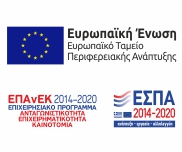Small fish and bivalves offer often-overlooked nutritional and environmental value.Many health-conscious consumers have already cut back on hamburgers, steaks, and deli meats, often by swapping in poultry or seafood. Those protein sources are better than beef, and not just because they're linked to a lower risk of heart disease, diabetes, and cancer. Chicken and fish are also better for the environment, as their production uses less land and other resources and generates fewer greenhouse gas emissions.
And choosing seafood that's lower on the food chain — namely, small fish such as herring and sardines and bivalves such as clams and oysters — can amp up those benefits. "It's much better for your health and the environment when you replace terrestrial food sources — especially red meat — with aquatic food sources," says Christopher Golden, assistant professor of nutrition and planetary health at the Harvard T.H. Chan School of Public Health. But instead of popular seafood choices such as farmed salmon or canned tuna, consider mackerel or sardines, he suggests.
Why eat small fish?Anchovies, herring, mackerel, and sardines are all excellent sources of protein, micronutrients like iron, zinc, and vitamin B12, and heart-healthy omega-3 fatty acids, which may help ease inflammation within the body and promote a better balance of blood lipids. And because you often eat the entire fish (including the tiny bones), small fish are also rich in calcium and vitamin D, says Golden.
Small fish are also less likely to contain contaminants such as mercury and polychlorinated biphenyls (PCBs) compared with large species like tuna and swordfish.
It's also more environmentally friendly to eat small fish directly instead of using them to make fish meal, which is often fed to farmed salmon, pork, and poultry.
Small fish in the Mediterranean dietThe traditional Mediterranean diet, widely considered the best diet for heart health, highlights small fish such as fresh sardines and anchovies, says Golden. Canned versions of these species, which are widely available and less expensive than fresh, are a good option. However, most canned anchovies are salt-cured and therefore high in sodium, which can raise blood pressure.
Sardines packed in water or olive oil can be:
- served on crackers or crusty, toasted bread with a squeeze of lemon
- prepared like tuna salad for a sandwich filling
- added to a Greek salad
- tossed with pasta, either added to tomato sauce or with lemon, capers, and red pepper flakes.
Bivalve benefitsBivalves are two-shelled aquatic creatures that include clams, oysters, mussels, and scallops. Also known as mollusks, they're good sources of protein but are quite low in fat, so they aren't as rich in omega-3's as small, fatty fish. However, bivalves contain several micronutrients, especially zinc and vitamin B12. Zinc contributes to a healthy immune system, and vitamin B12 helps form red blood cells that carry oxygen and keep nerves throughout the body healthy. While most Americans get enough B12, some may not.
And from a planetary health perspective, bivalves are among the best sources of animal-based protein. "Bivalves can be 'nature positive' because they don't require feed and they filter and clean up water," says Golden.
Aquatic plant foodsYou can even go one step further down the aquatic food chain by eating aquatic plant foods such as seaweed and kelp. If you like sushi, you've probably had nori, the flat sheets of seaweed used to make sushi rolls. You can also find seaweed snacks in Asian and many mainstream grocery stores. The truly adventurous may want to try kelp jerky or a kelp burger, both sold online.
Nutrients in seaweed vary quite a bit, depending on species (kelp is one type of brown seaweed; there are also numerous green and red species). But seaweed is low in calories, is a good source of fiber, and also contains iodine, a mineral required to make thyroid hormones. Similar to terrestrial vegetables, seaweeds contain a range of other minerals and vitamins.
Source: health.harvard.edu




